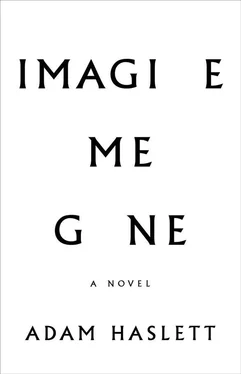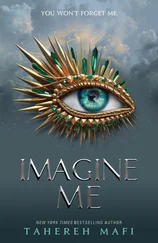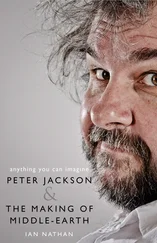I stayed and listened to every record she played. As I did the following week. She barely spoke between sets, practically whispering her playlist into the mic, using only the recorded PSAs, her demeanor strictly divorced from the frenzied energy of the tracks she spun. Obviously, I had to know more. After that second show I hazarded an invitation for her to join me for an early breakfast. By some miracle she agreed. We ate at a Dunkin’ Donuts in Cleveland Circle. She ordered tea and a plain, and offered the briefest of responses to my questions. Though I did manage to get out of her that she’d gone to high school in Houston, that her father was Nigerian and her mother Sri Lankan, and that (like me) she had no friends at BC. She was, moreover, studying black Anglophone poetry. Maybe when she told me this last fact I shouldn’t have reached quite so quickly into my messenger bag to read her the Audre Lorde quote I’d highlighted the day before—“The principal horror of any system which defines the good in terms of profit rather than in terms of human need, or which defines human need to the exclusion of the psychic and emotional components of that need — the principal horror of such a system is that it robs our work of its erotic value, its erotic power and life appeal and fulfillment”—but then I couldn’t help myself. We were meant for each other even more deeply than I had first understood. When I put the book down, she looked at me skeptically, as if I were a cad feigning interest for seduction’s sake. “Why do you read Audre Lorde?” she asked, unconvinced. But when I replied, “Who doesn’t read Audre Lorde?” she laughed for the first time, and I was able to breathe again, knowing this wouldn’t be our last meal.
Should the fact that we bonded that first morning at Dunkin’ Donuts over the work of a radical lesbian feminist have tipped me off that Caleigh would one day date women? You could argue that. But even if I’d known, I wouldn’t have done anything differently. I needed her too fiercely.
One of the troubles with reading Proust while living at home with your mother because you’re too depressed to be in college is that the experience simultaneously aggrandizes and hollows out your fondest hopes for love, leaving you both more expectant and already defeated than most people are into. “One can feel an attraction towards a particular person,” MP allows, which I sure in heaven did for Caleigh, “but to release that fount of sorrow, that sense of the irreparable, those agonies which prepare the way for love, there must be — and this is perhaps, more than a person, the actual object which our passion seeks so anxiously to embrace — the risk of an impossibility.” A sweet impossibility to goad the heart higher. Albertine’s lesbianism may be a filigree of Marcel’s imagination, trumped up to fend off boredom and the suspicion he doesn’t actually care for her, but Caleigh’s turned out to be the real, impossible thing.
But all that wasn’t until later. In the beginning, I just organized my life around her as I had organized my life around Angie, though we had so much more to talk about that there wasn’t any question of not seeing each other every day. I arrived at her dorm room midafternoons, after I’d finished my bakery shift and made the trip into Chestnut Hill. If she wasn’t there, I’d write a note on her door and wait for her outside. She’d lead me upstairs without saying much, and we’d start playing records, and I’d read aloud from Gide or Baldwin or Angela Davis as she lay on her bed with a hoodie pulled over her head, rolling her eyes at my oracular tone, chiding me more gently for what I cared about than anyone ever had. Her base state was one of melancholy. She read poetry but ignored her other assignments, sleeping ten to twelve hours a day. I pressed her again and again to reveal every detail of her past to me, but she divulged very little on that score. I had to piece together the internal exile of her high school years, when she was nearly as alienated from the black kids, who saw her as an immigrant freak, as she was from the white kids, who saw her as just black. About her vexed parental relations, she offered little more. All I could make out from stray comments and the occasional overheard phone call was a serious-minded Nigerian businessman who wanted his daughter to study a subject more practical than literature, and a somewhat morose Sri Lankan woman who hadn’t bargained on Texas. The only two subjects she was the least bit voluble on were music and her sense of being inadequate. Whatever portion of our afternoons and evenings that I didn’t monopolize describing how beautiful she was or reading aloud to her, she filled telling me I was just infatuated and that she was clumsy.
But while she insisted on disagreeing with my estimation of her, she wasn’t at all scared of my feelings the way Angie had been. She seemed, instead, to accept them as you might a physical disability. I was allowed to say constantly how much I loved her, and to complain about any delay or skipping of visits. She listened patiently to my descriptions of all that mesmerized me about her, and after protesting that she possessed none of the qualities I ascribed to her, she would reason out with me how I might cope with such a powerful need, as though counseling a friend with romantic troubles. If I had been a testosterone case, I suppose I might have found this condescending, but it struck me instead as deeply kind — for her to bear the debilitation of my love, and even to care for me in the throes of it. I could have talked about nothing else, but occasionally she would put a stop to it by changing the record, and we would both lie back and travel together over the peaks and valleys of those endless dub tracks carved into vinyl by King Tubby and his descendants, the occasional lyric echoing down the trenches of bass so deeply you couldn’t make out the words, only the longing behind them.
As time went on, her generosity toward me extended to hugging. I would sit next to her on her bed and she would put an arm around me and let me rest my cheek on her shoulder. I don’t need reminding how pathetic this seems, to be pitied in this way for what you want and can’t have by the very person you want it from. If I’d managed the tidy, maturational career of a bildungsroman protagonist, I might have suffered all this for a while, and then chucked passion aside for functional reciprocity. But Angie and my early days with Caleigh were no obligatory errors of youth; they were the blueprint. You can diagnose me all you like, and no doubt you will, as Celia and Alec never cease to, pointing out the doomed aspect of obsession, the anxiety it feeds, the supposedly genuine intimacy it precludes. And given my many years of experience in this field I can throw in for free whatever pathology you choose to make of a romantic and sexual attraction to black women by a white man who studies slavery and its legacy in the U.S. But you will come up with nothing that I haven’t thought or worried to death already. Which is one of the reasons I fill these forms out in such detail. The only relief comes in describing it.
That first physical contact with Caleigh, that first hug, wiped out whatever vestigial dignity or restraint I had managed to maintain. I wept. And not a few smiling tears of relief, but open sobbing. And still she held on to me. She said later that she kissed me then not out of pity but because my weeping made her want to kiss me. If she hadn’t already been my best and perhaps only friend, I wouldn’t have believed her, but she’s never dissembled. She doesn’t have the energy for it, and she isn’t trying to get anywhere, so she has no reason to lie or manipulate people. It’s one of the upsides of avoiding ambition.
Thus the answer to the question of a “real date” that had tortured me with Angie came in the vanishing of the question. With Caleigh’s first kiss, that full fount of sorrow opened up: my wretchedness had never been so entirely relieved, even if it returned with a vengeance as soon as our kissing ended. She forgave even my shuddering awkwardness in bed. Being naked with her was terrifying. I couldn’t see how everything I did wasn’t a prelude to rape. My thoughts were unacceptable; my body jerked like a spastic dog; I did everything I could to make sure I wasn’t hurting her and was still certain I was hurting her. It was best when she closed her eyes and I sensed there might be pleasure for her I couldn’t touch or see, some thing or place hidden back inside her where she could go in my presence, if only alone. Then, at least, I didn’t feel purely selfish. It’s so easy to mock the earnestness of men who actually believe in feminism rather than simply pretend to for advantage, as if trying to step beyond a history of violence is a dweeb’s sickly riposte to not getting enough. I wanted to love her, and to be as kind to her as she already was to me. She says she’s never regretted that we had this period together, and I believe her.
Читать дальше












